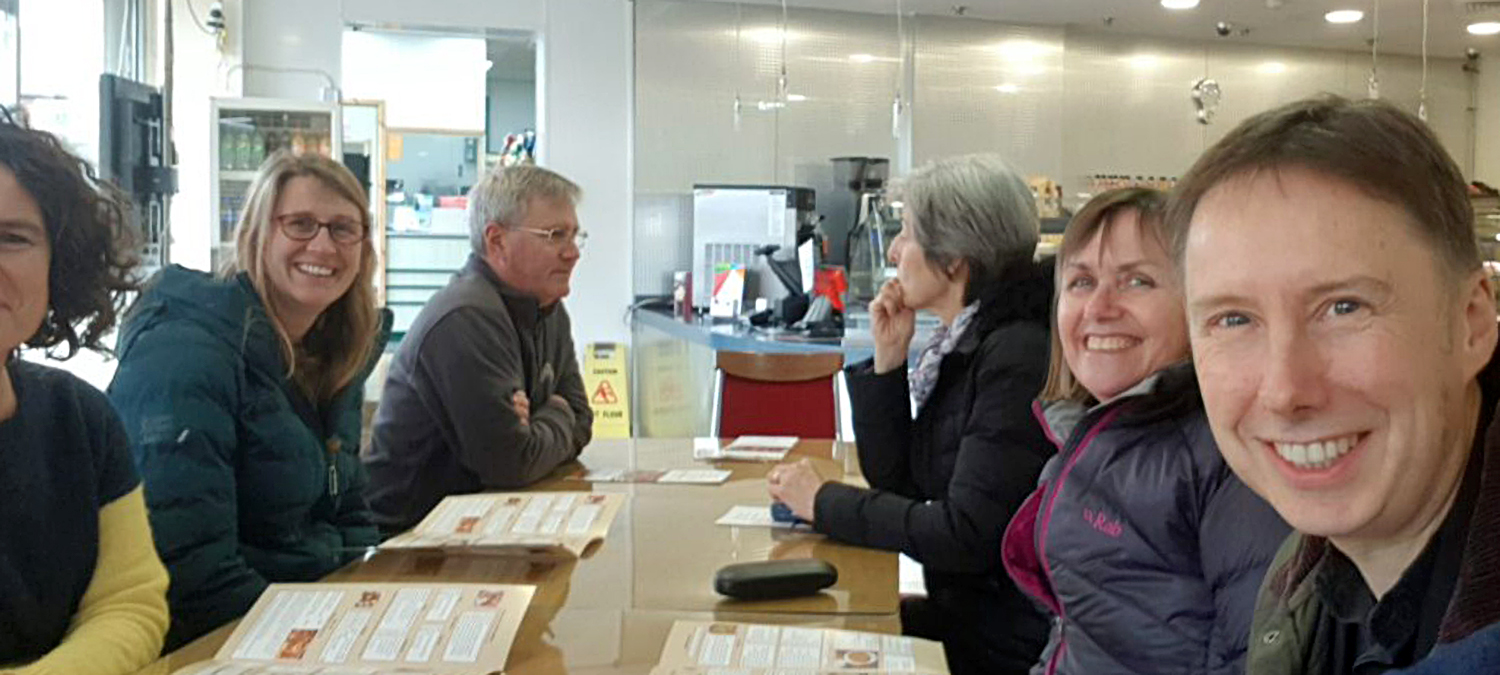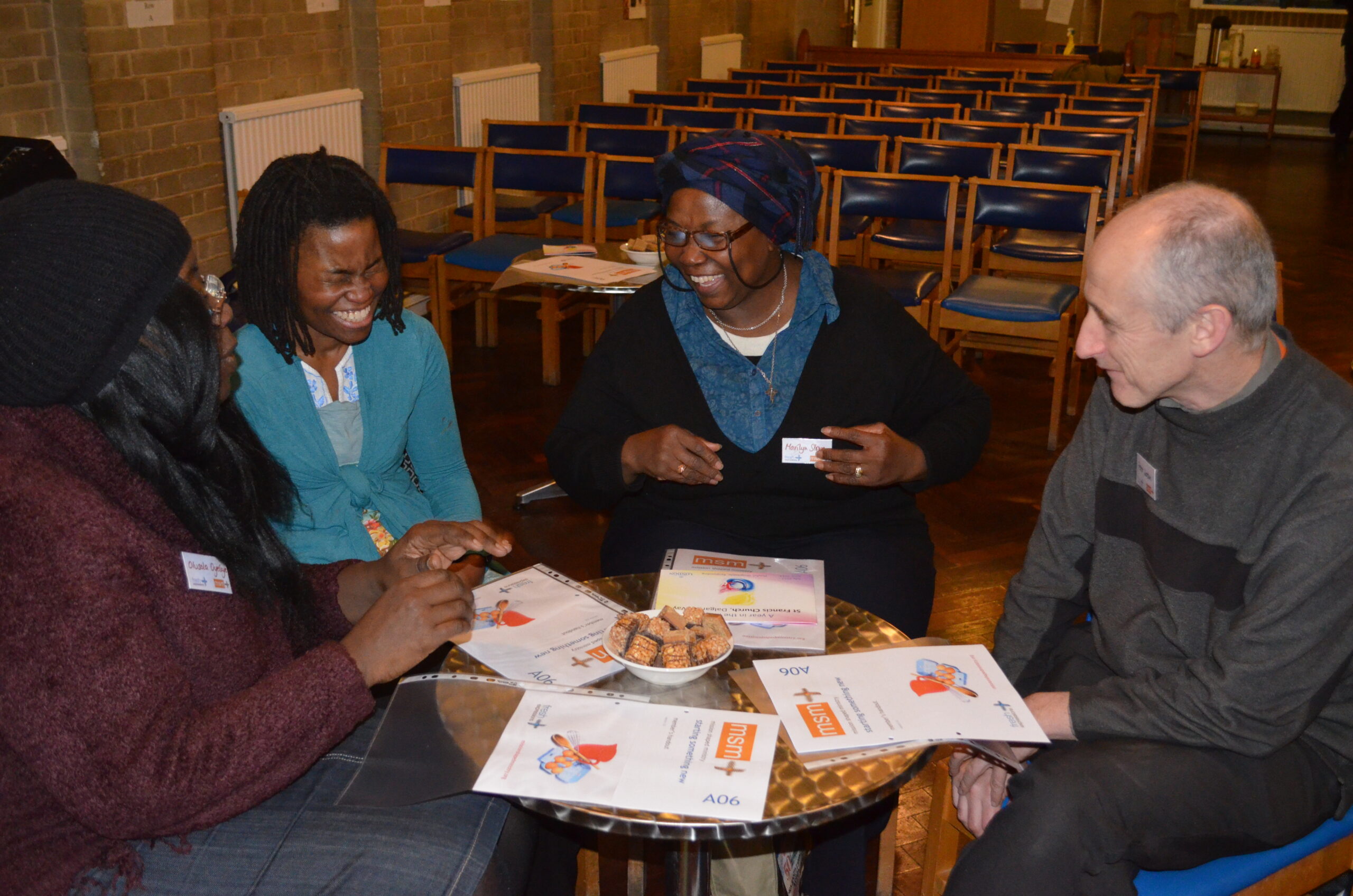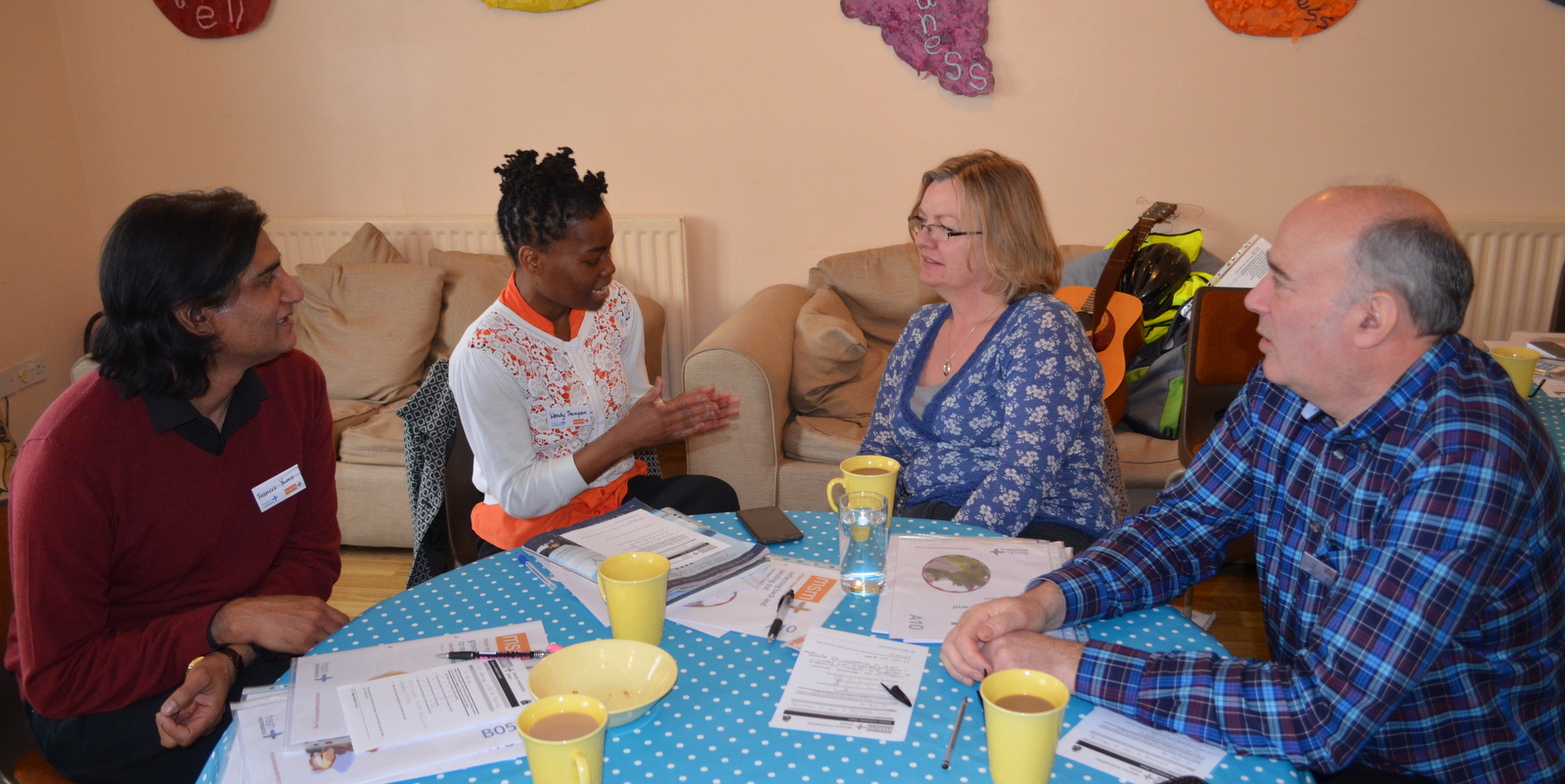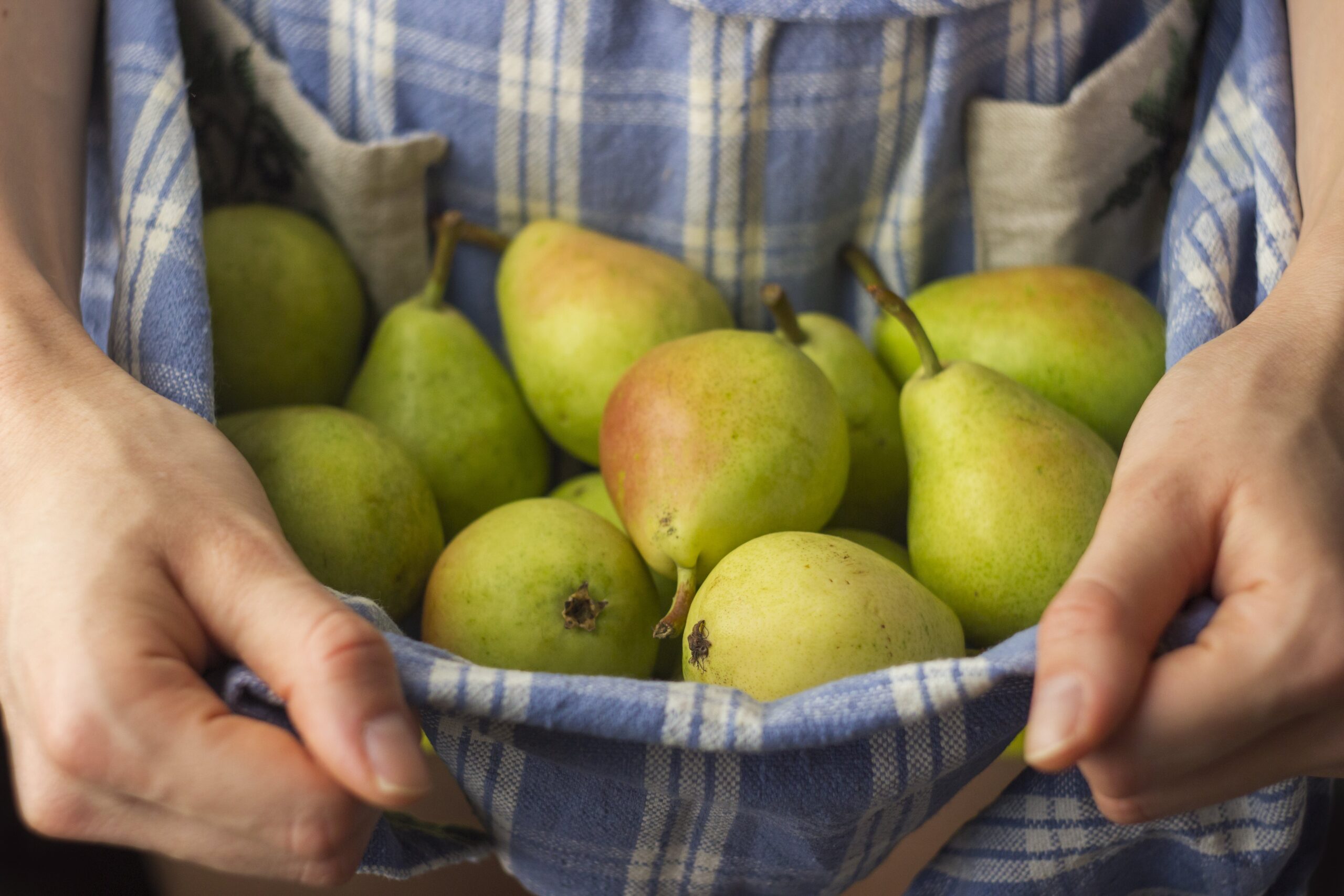Pioneers spend most of their time with people outside the Church, working with them to build new ecclesial (church) communities (Fresh Expressions of Church).
Pioneers are people called by God who are the first to see and creatively respond to the Holy Spirit’s initiatives with those outside the Church; gathering others around them as they seek to establish new contextual ministries.
In the Diocese of Southwark we want to affirm and encourage both Lay and Ordained Pioneers.
With nearly 30% of our churches pioneering new ecclesial communities in their local contexts, we are developing pioneer ministries in several ways at once. We are currently looking for the next 100 Pioneers who will help us share the Good News of Jesus Christ with those we traditionally find it hard to reach.
There is a wide spectrum of pioneering. Some pioneers will be Replicators who take a model of church and try it in a new place. Others will be Adaptors, fitting the approaches of others to their local context. Some will be Innovators experimenting with new ways to connect with people well beyond the boundaries of church.
Pioneering can sometimes be challenging but more often it is exciting and rewarding. Here are the experiences of some of our pioneers:
Pioneers can be either Lay or Ordained and if you are interested in exploring a call to become a Pioneer then please do contact Will Cookson (contact details below) or look at the Lay Pioneer or Ordained Pioneer pages for information. We also hold Pioneer gatherings that are open to both lay and ordained people who are exploring pioneering.
More about the Pioneer Spectrum
One helpful way of looking at pioneer ministry is through the idea of a Pioneer Spectrum. It is very easy to label all Pioneers the same way but the reality is that there is a wide range of pioneering. The Pioneer Spectrum tries to illustrate this and help people and churches think through what they are being called to.
Read moreUsing the idea of a Pioneer Spectrum, we then need to ask what a particular Pioneer might be called to.
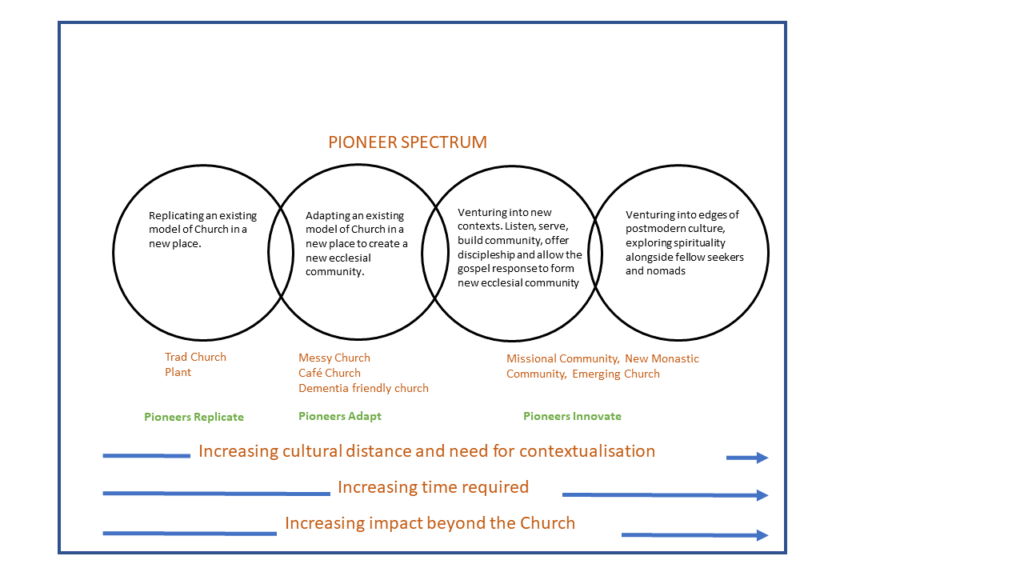
For example, with Pioneer Replicators we are looking at where a parish church needs revitalising with a graft or a church Plant. Taking a model that works elsewhere and launching it may be the most appropriate thing to do.
Pioneer Adaptors will be looking at what others have pioneered elsewhere and seeing how they can be contextualised for their situation. Examples here would include Messy Church, Café Church, dementia-friendly services, New Monastic Communities and so on. Each has a recognisable model that needs adapting for the local community.
With Pioneer Innovators we need to set things up for the long haul. It may take years before we see new forms of Christian community coming into being. The key outcome will not be a church that looks like the parish church; rather, by digging into the riches of their traditions and listening to their context and the Spirit, Pioneer Innovators will reach communities who would otherwise not be connected to the Church. Connected to the Diocese, these Innovators will share new insights from the Gospel and the culture they are seeking to reach, helping our long-term call and mission to share the Good News of Jesus Christ.


